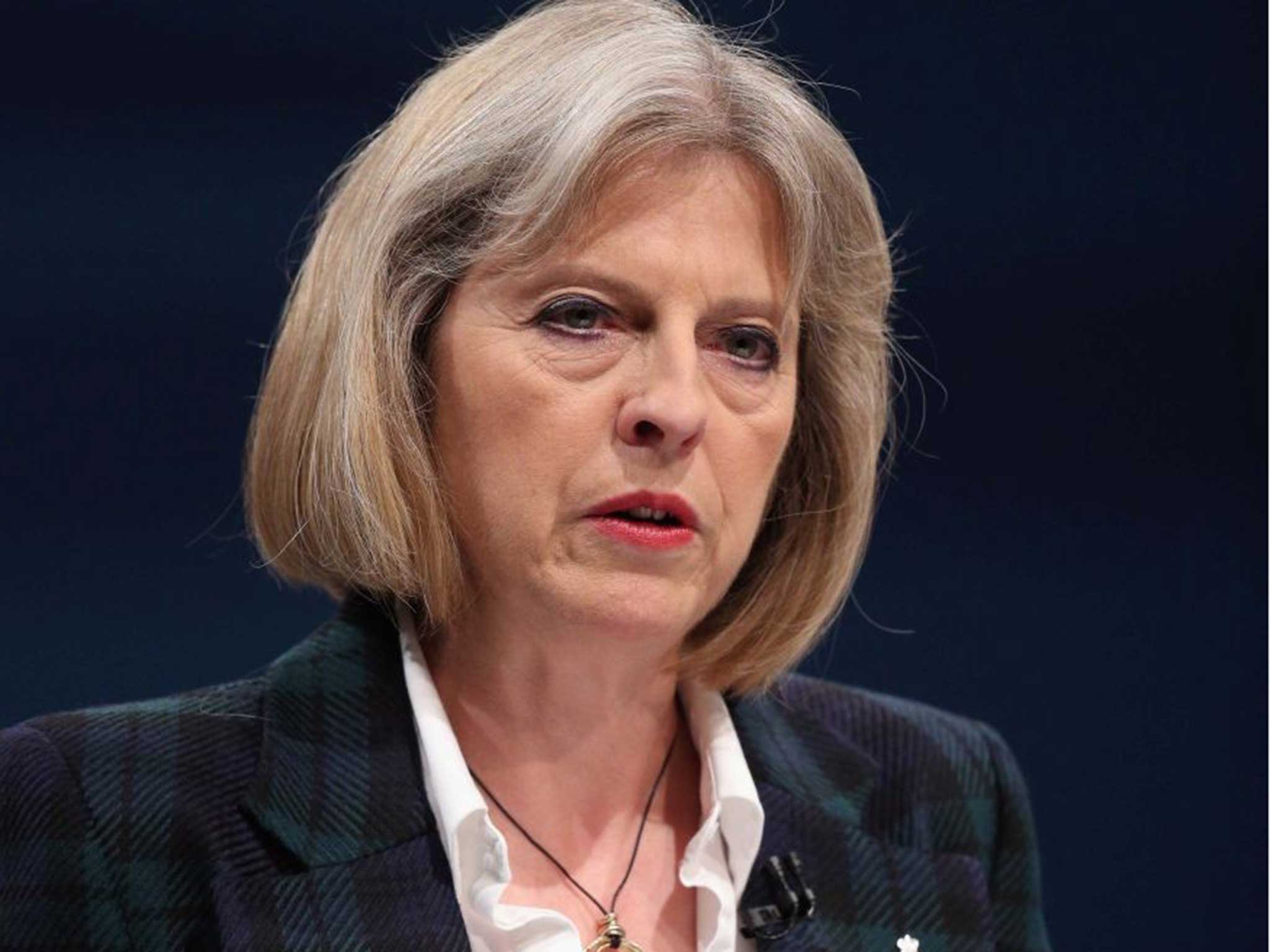Theresa May is gradually building a surveillance state in bite-sized chunks
Keeping track of suspected terrorists will keep us safe, but mass surveillance of the entire British population won't

Should comedians be put under surveillance? Mark Thomas, the comedian and activist, is now threatening to sue the Met Police after he was put under surveillance by their “anti-extremism” unit, the same unit that's supposed to be keeping us safe from jihadists and neo-fascists.
Thomas isn't alone, the Police and intelligence agencies have placed lawyers, MPs, and peaceful protesters all under surveillance. The Police say lessons have been learnt since they put Baroness Doreen Lawrence under watch after her son Stephen was murdered. It isn't clear what those lessons are.
Malcolm Rifkind MP published his committee's report into the murder of fusilier Lee Rigby yesterday. Theresa May has now unveiled new anti-terrorism legislation that will yet again expand the burgeoning surveillance state in the UK. Both have drawn entirely the wrong lessons from recent acts of terrorism. Surveillance is not making us safer, it is making us less safe.
The Intelligence Services Committee (ISC) report into the murder of Lee Rigby is an incredible and thorough read that shows just how crucial human error was in enabling terrorism on the streets of Woolwich. Rigby's murderer, Michael Adebolajo, was investigated no less than 5 times by MI5 for his extremist activities. He was a member of barred terrorist group Al Ghurabaa, and arrested on demonstrations against the Mohammed cartoons in 2006 and in 2012. An MI5 desk officer even recommended that Adebolajo should be put under surveillance as he was such a risk to public safety. It didn't happen.
The authorities could have made a request to the PREVENT programme to attempt to deradicalise Adebolajo through peers and Imams. This didn't happen either. Most damning is the fact that neither the police nor the SIS kept records on Britons travelling to Somalia, a key international hub for terrorists. Even after Adebolajo was arrested by the police in Kenya, apparently on route to train with terrorist organisation Al-Shabaab (an al-Qaeda affiliate), he still wasn't placed under surveillance for another four months.
The headline from the report, swallowed whole by the media, is that American internet companies are refusing to comply with surveillance requests. But in the case of Lee Rigby, they were never asked. Even “MI5 noted that Adebolajo was a “difficult [suspect] to investigate”due to his security-consciousness”. He used pay phones rather than smart phones and barely communicated online. Hardly a person that extra online surveillance would catch.
Keeping track of suspected terrorists will keep us safe. Mass surveillance of the entire British population simply won't. In a telling passage in the report, the ISC admits to the existence of the TEMPORA programme - the tapping of undersea cables off the coast of Cornwall to harvest the communications data of every UK internet user. As you can see in film Citizenfour, Snowden originally revealed this as the world's first “full take” of the internet in 2013. As the ISC admits, even capturing the internet didn't work as Adebolajo wasn't on a target list at this point. You have to wonder how much the useless TEMPORA project is costing us.
Backing the endless expansion of the surveillance state is Theresa May. May is right to take the threat from radicalised jihadists seriously. She is wrong to think that placing ordinary citizens under surveillance is the answer. Parliament rejected the draft communications data bill saying mass population surveillance is expensive and unnecessary. May isn't listening.
Theresa May has decided to treat Parliament like a baby. She was told her plans for a communications data bill were wrong, so she's gone away and mushed the plans into a seemingly innocuous gloop which she is now spoon-feeding to MPs. In the last year alone, we've had two pieces of legislation that extend surveillance in this country: the Data Retention and Investigatory Powers Act (DRIP) and now today's Counter Terrorism and Security Bill.
Both pieces of legislation will be rushed through Parliament with little debate. Many of the powers in the draconian Snoopers Charter are in the detail of this legislation. The Liberal Democrats crow that they killed off the Snooper's Charter, they won't tell you that by voting for DRIP they broke a manifesto commitment (p.94 if you're interested). Labour is no better. I've been told their Shadow Cabinet is divided on this, with Yvette Copper hawkish and wanting the party to go further. Ed Miliband is, as yet, undecided. Meanwhile, Theresa May is positioning herself for a possible Tory leadership bid. Conservative backbenchers are less impressed with her assault on civil liberties.
When you read the ISC report, you realise the pressure GCHQ, MI5 and the police are under. They have the powers they need, but are being distracted by new, intrusive technologies. We need a tighter law on surveillance to stop the police spying on people who pose no threat such as Mark Thomas and Doreen Lawrence and get them to focus those who pose a real threat. It's time for us to tell politicians that we want old-fashioned intelligence operations. Once we were dazzled by political promises to keep us safe; this trick isn't fooling anyone anymore.
Mike Harris is the Campaign Director of Don't Spy On Us @mjrharris

Join our commenting forum
Join thought-provoking conversations, follow other Independent readers and see their replies